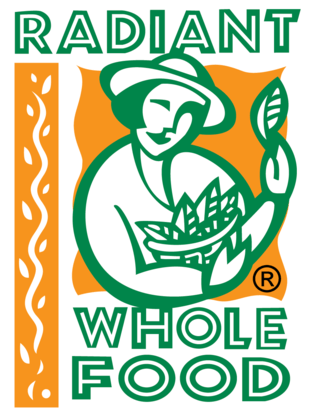
Apr 17 , 2020
What Does "Organic" Mean?
What Does "Organic" Mean?
Making a commitment to healthy eating is a great start towards a healthier life. Beyond eating more fruits, vegetables, whole grains and good fats, there is also food safety, nutrition, and sustainability to consider. How foods are grown or raised can impact both your health and the environment. This brings up a few questions: What is the difference between organic, natural and conventionally grown foods? Is "organic" always best? What about locally grown foods?

Biodynamic agriculture was the first modern system of agriculture focusing on organic methods. Its development began in 1924 by Rudolf Steiner, which later came to be known as organic agriculture. It stressed that the farm should be seen as a "living organism".
The term "organic" refers to the way agricultural products are grown and processed. Specific requirements must be met and maintained in order for products to be labelled "organic". Organic crops must be grown in safe soil with clean water and must remain separate from conventional (non-organic) products, to avoid cross contamination of crops. Farmers are not allowed to use synthetic pesticides, weedicides, herbicides, bioengineered genes (GMOS), petroleum-based fertilisers and sewage sludge-based fertilisers. Furthermore, organic seeds are used while genetically modified seeds and ionising radiation are prohibited.
"Feed the soil to feed the plant" is what all organic farmers practise religiously. When farmers raise soil fertility over a period of time using crop rotation and organic matter such as crop residue, compost, liquid manure and green manure, all the major soil nutrients taken up by plants or lost through soil erosion are replaced naturally, maintaining soil fertility. There is sustainability in organic farming and the soil will not be depleted until it is of no use. Research has shown that prolonged usage of chemical fertilisers and weedicides kills off microorganisms that thrive in the soil that helps to heal and regenerate the soil. Huge acreages of land in the world that use chemical fertilisers and pesticides over prolonged periods have been abandoned when the soil becomes arid and unsuitable for farming.
Organic farmers are required to maintain buffer zones between organic farmland and nearby conventional farms, ranging from 15m and above, depending on the possible risk assessment. This prevents contamination from adjacent potential sources of water, chemical or pollination of genetically modified crops from nearby conventional farms.
Pests, weeds and diseases are controlled through management practices including physical, mechanical and biological controls. When these methods are insufficient. approved synthetic means can be used. For example, synthetic pyrethrum made from chrysanthenmums is an effective insecticide that is not harmful to the environment or farm workers.
In livestock farming, growth hormones, antibiotics and the use of animal feed are prohibited. The livestock are fed with 100% certified organic feed except for trace minerals and vitamins used to meet the animals' nutritional requirements.
Organic livestock must be allowed to roam freely to exercise in open spaces all year round unless in extreme weather conditions. They should have access to certified organic pastures during the grazing season, with at least 120 days of grazing. Their organic diets contain 30% dry matter from certified organic pasture, and the rest will be certified organic hay, grains and other organic agricultural produce. The animals are provided with clean drinking water, shade, fresh air, clean dry bedding and shelter from direct sunlight. Abuse and cruel treatment of the animals are not acceptable. For example, in poultry farming, de-beaking, de-toeing and wing trimming are not permitted.
It is important that animals go through proper slaughtering procedures. Research has shown that animals have a tendency to excrete high levels of steroids when slaughtered improperly, and when the meat is ready for consumption, residues of the steroids have been found in the meat. Similarly, when we consume meat from livestock reared with antibiotics, growth hormones and chemical animal feed, traces of these chemicals are passed to humans, and they can induce cancer and weaken our immune system. Not only do the land, livestock and poultry have to be respected, the farm workers living conditions and health have to comply with organic standards. Employees wages, working conditions and living quarters must be regulated with these standards, especially when migrant workers are employed.
Lastly, the organic farms, whether agriculture or livestock, must develop an organic management plan that complies with international organic standards and on-site audits are carried out annually by appointed certifying bodies.











